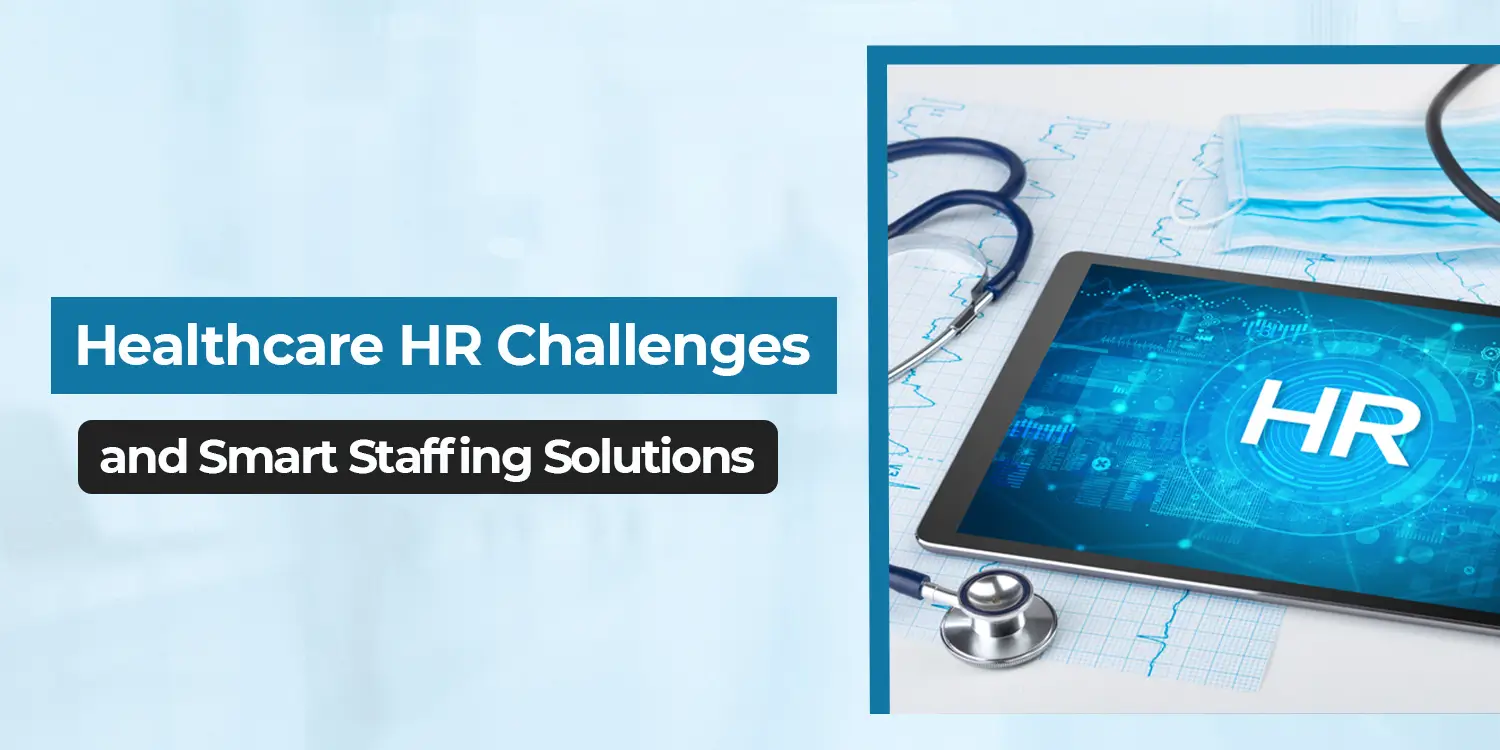In today’s fast-evolving medical landscape, Healthcare HR challenges are at the forefront of discussions among hospital administrators and human resource professionals. Staffing a healthcare facility is never a simple task it’s an intricate balancing act involving workforce shortages, compliance, and the constant struggle to keep employees engaged. For organizations like JR Enterprise, addressing these challenges with innovative solutions has become a necessity rather than a choice.
The Complexity of Healthcare HR Challenges
Unlike most industries, healthcare HR doesn’t just deal with hiring and payroll. It faces a unique set of demands that directly impact patient safety and quality of care. Some of the biggest challenges in hospital human resources include:
- Ongoing healthcare workforce shortages
- High turnover due to nursing staff retention issues
- Regulatory and compliance challenges in healthcare HR
- Persistent healthcare employee engagement problems
Each of these factors creates stress for hospitals, clinics, and long-term care facilities. Without effective workforce management, hospitals risk compromising both their employees’ well-being and their patients’ outcomes.
Workforce Shortages: A Crisis in Motion
One of the most pressing healthcare HR challenges is the shortage of qualified professionals. From nurses to specialized technicians, the demand for skilled staff is growing faster than the supply. The aging population, combined with increasing healthcare needs, has left many organizations scrambling to fill vacancies.
These healthcare workforce shortages often lead to longer shifts, increased workloads, and higher burnout rates. Unfortunately, when staff are stretched too thin, mistakes are more likely to occur a risk hospitals simply cannot afford.
The Retention Dilemma: Keeping Nursing Staff Engaged
Even when hospitals manage to recruit talented professionals, another obstacle looms nursing staff retention issues. Nurses are the backbone of healthcare, yet they face overwhelming workloads, emotional stress, and limited career development opportunities.
Retention challenges don’t just cost hospitals money; they disrupt patient care continuity and impact morale across the workforce. Improving retention requires creating a supportive environment that values growth, recognition, and flexible scheduling.
Employee Engagement: More Than a Buzzword
When we talk about healthcare employee engagement problems, we’re highlighting a core issue that affects productivity, morale, and patient satisfaction. Many healthcare workers feel undervalued or disconnected from decision-making processes.
Hospitals that prioritize engagement through recognition programs, transparent communication, and professional development often see improvements in retention, teamwork, and overall service quality. Engagement isn’t a bonus; it’s a strategy that safeguards against turnover and disengagement.
Compliance Challenges in Healthcare HR
Healthcare HR also carries the heavy responsibility of navigating complex regulations. From labor laws to patient confidentiality (HIPAA compliance in the U.S., for example), staying compliant is non-negotiable. Mistakes can result in hefty fines, reputational damage, or even legal consequences.
The compliance challenges in healthcare HR often overwhelm HR teams, who must juggle credentialing, ongoing training, and strict reporting requirements. Automating these processes and ensuring consistent policy enforcement can reduce errors and streamline compliance.
Smart Staffing Solutions: How JR Enterprise Leads the Way
So, how can organizations overcome these mounting HR hurdles? At JR Enterprise, the focus is on deploying smart staffing solutions that directly address the pain points of healthcare facilities. Here are some strategies that are transforming workforce management in healthcare:
1. Data-Driven Scheduling
By leveraging workforce analytics, hospitals can predict staffing needs more accurately. This prevents under- or over-staffing while reducing burnout among nurses and physicians.
2. Flexible Workforce Models
Introducing part-time pools, float teams, and telehealth support allows hospitals to adapt quickly to demand surges without exhausting full-time staff.
3. Engagement-Focused Programs
Structured mentorships, recognition initiatives, and career growth pathways help tackle healthcare employee engagement problems and build loyalty.
4. Automated Compliance Tracking
Digital platforms make it easier to monitor licenses, certifications, and training requirements ensuring full compliance while reducing HR workload.
5. Retention-Boosting Incentives
Competitive benefits, work-life balance initiatives, and mental health support programs can significantly reduce nursing staff retention issues.
The Future of Workforce Management in Healthcare
The future of workforce management in healthcare lies in blending technology with empathy. While AI-driven scheduling tools and automated compliance systems ease operational burdens, human-centered leadership remains critical. Employees want more than a paycheck; they seek respect, purpose, and opportunities for growth.
By investing in both smart tools and compassionate leadership, healthcare organizations can rise above current staffing struggles. JR Enterprise believes that solving healthcare HR challenges requires a holistic approach where innovation meets humanity.
Final Thoughts
The healthcare sector is facing undeniable HR hurdles healthcare workforce shortages, nursing staff retention issues, engagement struggles, and compliance complexities. However, with the right strategies, hospitals can transform these obstacles into opportunities.
JR Enterprise continues to pioneer smart staffing solutions that empower healthcare facilities to operate efficiently while maintaining the highest standards of patient care. The path forward demands creativity, adaptability, and above all, a commitment to the people who keep healthcare running.


One Comment